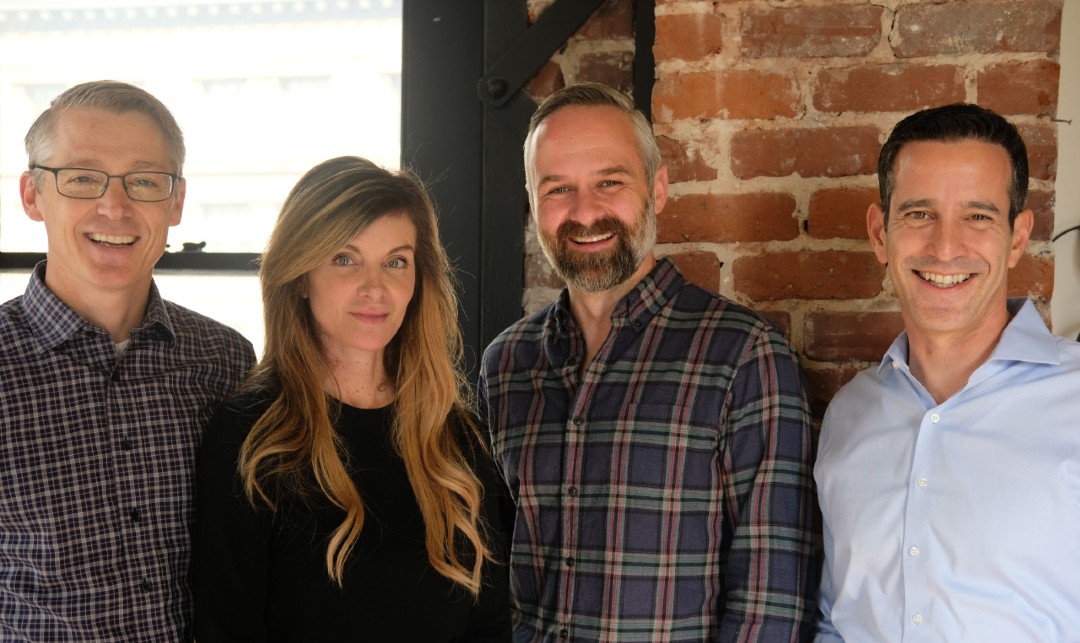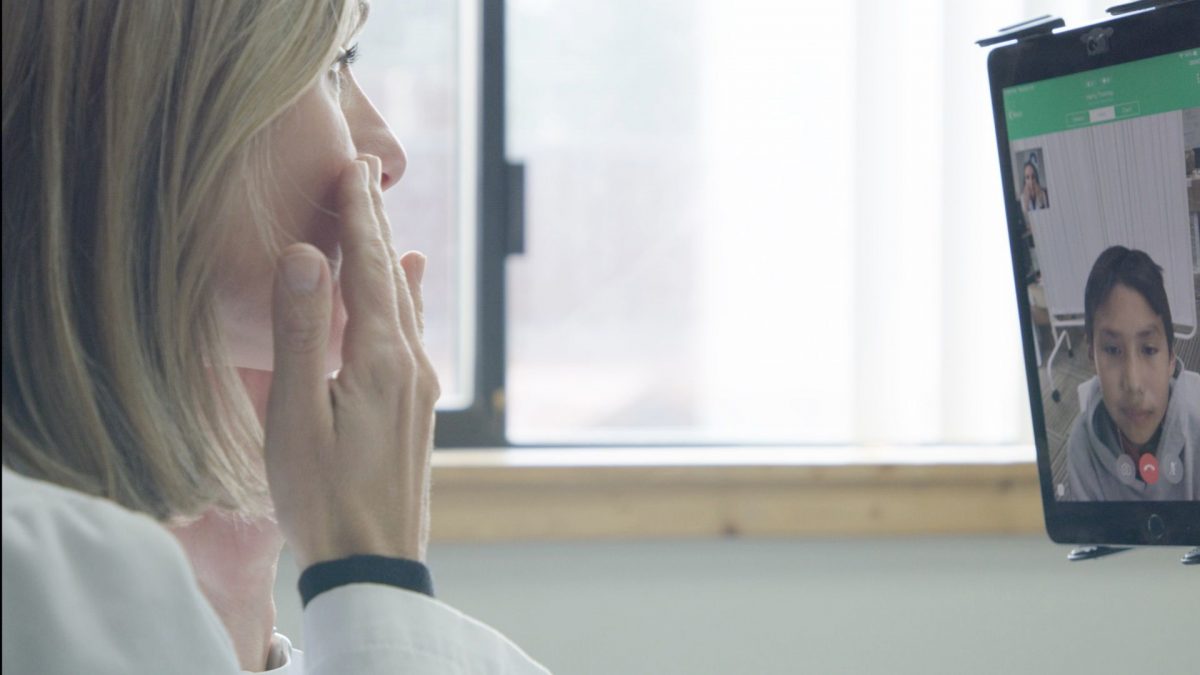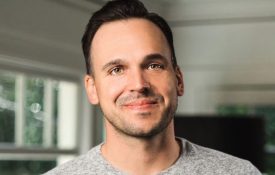What are your biggest business concerns surrounding COVID-19?
As a company that provides healthcare to K-12 students, we have been focused on making sure families that rely on Hazel to care for their children can still access our services. We have developed a service that families can use to access a doctor from the comfort of home. Many families don’t have primary care providers, and the first place they go when children need to see a doctor is the ER. With schools closing due to COVID-19, and the need for hospitals to reserve resources for those in critical condition, it’s more important than ever to ensure that families in underserved communities have access to care and information.

The Hazel Health leadership team: Dr. Rob Darzynkiewicz, Raquel Antunes, Nick Woods, and Josh Golomb.
What is your current business strategy for dealing with the situation?
Hazel was founded to expand access to healthcare for all children, by providing it in a trusted setting—in school. To date, Hazel has always operated within schools, during the school day. School nurses would open the Hazel app within their health office to help any student have an on-demand doctor visit.
With many families affected by school closures, we’ve been working closely with school districts coast to coast, representing 230,000 students, to offer “Hazel at Home”—the ability for families to connect with a doctor from the comfort of their kitchen or living room.
As schools close, we’ve seen a number of requests to continue providing our services, and we’re answering the call by expanding access for families, waiving certain fees for schools, and providing free access to resources on our site.
How do you think things will look in your industry a year from now?
The past month has been a time of great change and opportunity for telehealth. As support for the use of telehealth has grown, these platforms have seen a tremendous spike. We’re seeing an increased need for doctors, nurses, physician assistants—to help with the demand, and there will need to be more training to ensure that healthcare workers are equipped to see patients digitally. Until now, adoption of telehealth within the home has been slow for a number of reasons, but with so many people being encouraged to use telehealth services during the pandemic, we expect to see increased usage and engagement for years to come as a result of the exposure that is happening today. Many telehealth companies have been seeing 3-4x the demand they saw for visits before the pandemic.

A Hazel provider with student.
What have you learned from other difficult times in the past?
It’s most important for us right now to stick to our core mission of providing all children with healthcare. In such unique circumstances, our work is more important than ever, and we’re collaborating as a team to expand our services and meet the needs of the families we serve. Our biggest challenge now is expanding Hazel to new markets to ensure all families have access to care as schools make plans to re-open, while at the same time shifting our core focus to our new Hazel at Home model.
Safe–and entertained–at Home: What business leaders are doing with their downtime
Morning routine?
Honestly, it feels like one long day. I wake up before the rest of my clan and connect with my East Coast teammates. One of my commitments to myself was that I’d use some of my old commute time to stay healthy, and I have done far better than I expected. Many days I end up putting in 30 minutes helping my kids with their schoolwork, and it reinforces my appreciation for teachers.
Currently binging?
I finally had time to finish HBO’s Watchmen and thought it was phenomenal. Also, full transparency that my wife and I have seen way too much 90-Day Fiancé. I pretend that I am only watching it to spend quality time with her, but I am pretty much addicted.
Currently reading?
Darren Gold has a fantastic book called Master Your Code that I recommend for any leader. Also, my dad who lives 300 miles away loves Words with Friends. I’ve downloaded it and play with him every day to stay connected (also helping my vocabulary a ton!).
What are you doing to spend quality time with those you’re sheltering with?
I have three sons—we play lots of board games and backyard football. It has also been really fun joining along for their hobbies—researching dessert recipes to try (churros this week!), trying to understand how to play Fortnite, etc.
One thing I really appreciate my wife has initiated is a family gratitude journal. Every day we go around and share something we’re appreciative for. Working in healthcare and at Hazel specifically puts so many things into perspective—how many families do not have healthcare access, do not have the ability to work from home—who are being asked to shelter-in-place in small spaces while terrified about making ends meet. It is very important to us to both acknowledge how challenging this feels for our kids, while also being very clear about how fortunate we are.
What are you doing to stay healthy mentally and physically?
When we had to pivot our business quickly in those early weeks, and I was working from home, I quickly realized every day was one long workday. I’ve focused on creating those meaningful breaks and boundaries—now I exercise every day and that helps keep me centered and focused. I also spend time reviewing our patient stories and progress. Some of this is because it’s part of my job. However, it also helps ground me in my own purpose and ensure I’m living a life of service.
Where are you dreaming of visiting once things are back to normal?
This experience has truly made me appreciate the simple things in a new way. I’m looking forward to everyday things—like coaching my sons’ soccer games again. I feel like after this experience, those everyday joys will feel like the biggest luxury.












































